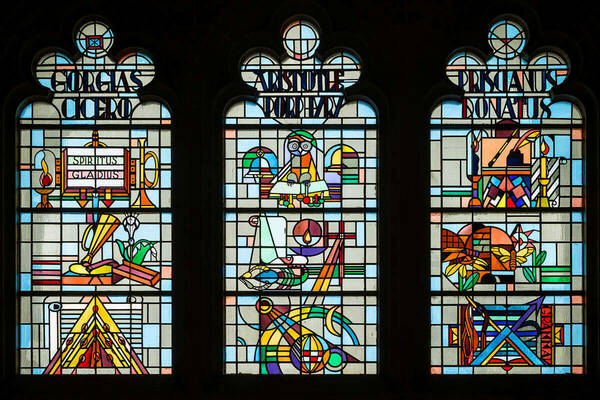
Katie Jarvis, the Carl E. Koch Associate Professor in the Department of History and faculty fellow of the Nanovic Institute for European Studies has won a National Endowment for the Humanities fellowship, extending the University of Notre Dame’s record success with the federal agency committed to supporting original research and scholarship.
Since 2000, Arts & Letters faculty have received more NEH fellowships than any other private university in the country. NEH fellowships are competitive awards granted to scholars pursuing projects that embody exceptional research, rigorous analysis, and clear writing. Jarvis is one of three faculty members in the College of Arts & Letters among the class of fellows announced by the NEH this week, alongside Sara Bernstein, an associate professor in the Department of Philosophy, and Tarryn Chun, an assistant professor in the Department of Film, Television, and Theatre.
“We are thrilled and proud that these members of our faculty are continuing Notre Dame’s unprecedented success in earning NEH fellowships and grants,” said Sarah A. Mustillo, the I.A. O’Shaughnessy Dean of the College of Arts & Letters. “These awards recognize the outstanding research that is happening here across a range of disciplines, the creativity and originality of our scholars, as well as the excellent support provided by the Institute for Scholarship in the Liberal Arts throughout the application process.”
Notre Dame also received a significant grant for a digital scholarship project led by Robert Goulding, director of the Reilly Center for Science, Technology, and Values, in partnership with the Navari Family Center for Digital Scholarship and director Scott Weingart as well as collaborators at the University of Oxford’s Bodleian Library.
“These awards recognize the outstanding research that is happening here across a range of disciplines, the creativity and originality of our scholars, as well as the excellent support provided by the Institute for Scholarship in the Liberal Arts throughout the application process.”
Forgiveness in Revolutionary France

Jarvis, a historian of early and late modern France, will spend her fellowship writing her book, Democratizing Forgiveness in Revolutionary France, 1789–1799, which examines how everyday citizens forged modern politics and society by reinventing reconciliation. As a member of the Nanovic Institute's Transformations in Modern Europe working group, Jarvis developed this project in a workshop with her faculty fellow colleagues.
Jarvis is exploring how the revolutionaries, after wresting the power of pardon from the king and the Church, refashioned forgiveness en masse and channeled political overtones into routine citizen relationships.
“My project analyzes how individuals deployed institutions of the state or Church to effect these very personal repairs,” said Jarvis, who is also a faculty fellow of the Kellogg Institute for International Studies and affiliated faculty in the Gender Studies Program. “Enduring sociopolitical change cannot take root through constant, intense conflict alone.”
Jarvis explains that people “repaired broken bonds by arbitrating local disputes, forgiving personal loans, and settling debt in court. And they reconceptualized reconciliation through sacramental confession, innovative religious cults, and the education of youth.”
The study begins from an interdisciplinary framework, seeking to understand decisional forgiveness, which produces pragmatic resolutions through practices and procedures, rather than emotional forgiveness, which requires one party’s change of heart.
Jarvis, who plans to conduct research in France and present her work at conferences during her fellowship, became interested in the topic when doing research for her book Politics in the Marketplace: Work, Gender, and Citizenship in Revolutionary France, which won the American Society for Eighteenth-Century Studies’ Louis A. Gottschalk Prize in 2020. She noticed that revolutionary ideas, including those about equality, crept into civil court transcripts about disputes among neighbors.
“This made me wonder how these micro-resolutions and other forms of procedural forgiveness became a way for citizens to invent and enact sweeping revolutionary transformations through everyday life,” she said.
Originally published by at al.nd.edu, with modifications by Gráinne McEvoy at the Nanovic Institute, January 13, 2022.